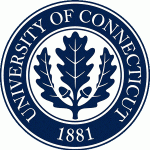The Department of Economics successfully held its first Graduate Assistant (GA) Orientation on January 16, 2023. The GA Orientation was coordinated and led by Professor Tianxu Chen. The event has been designed to support our GAs/TAs and student Instructors by providing them with strategies and tools to successfully start and manage their teaching responsibilities. It also aims to help promote their professional development in teaching.
The orientation invited David Des Armier from the Center for Excellence in Teaching and Learning (CETL) to share information about how to design a HuskyCT course webpage, as well as to familiarize GAs with University policies and CETL resources. During the orientation, Professor Talia Bar, Professor Tianxu Chen, Professor Mike Shor and Professor David Simon also shared their teaching experience with the GAs, and provided advice on a wide range of topics including lecture preparation, academic integrity, class engagement, and ensuring an accessible environment for students with disabilities.
The GA orientation had a great turnout. Over a dozen of PhD students from different cohorts attended the event, and we expect it to be held regularly in the future.






 The
The 
